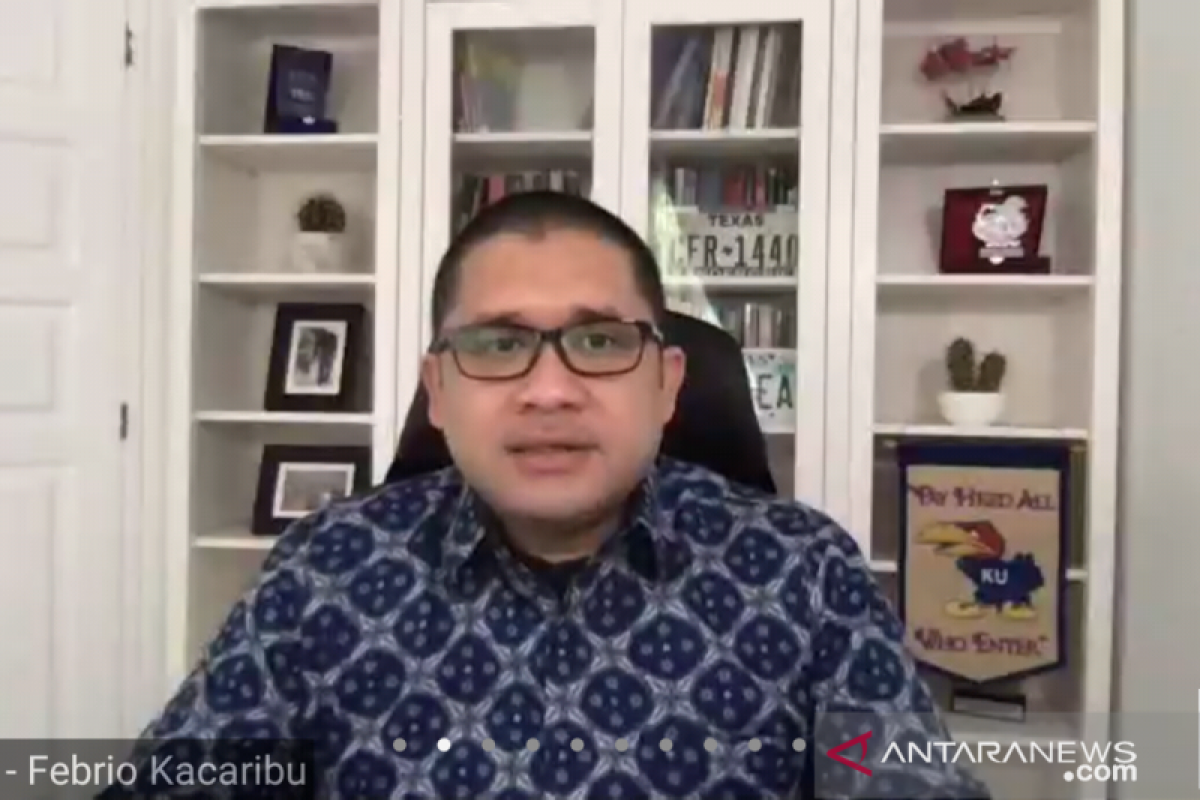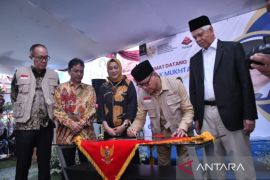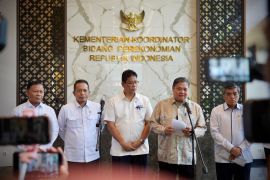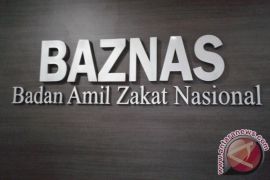This program runs well and is expected to be a model and scheme that is fast, effective, and can be a driving force for the economyJakarta (ANTARA) - Finance Ministry's Fiscal Policy Agency (BKF) noted that the Micro, Small, and Medium Enterprises (MSMEs) that submitted guarantees for working capital loans through banks reached Rp31 trillion in below a month since the July-7 launch.
"This program runs well and is expected to be a model and scheme that is fast, effective, and can be a driving force for the economy," BKF Head Febrio Kacaribu noted in an online discussion to boost tax revenue in Jakarta on Friday.
Kacaribu remarked that MSMEs were expected to surmount over the impacts of the COVID-19 pandemic.
The BKF head expounded that most credit scores submitted by SMEs affected by COVID-19 ranged between Rp50 and Rp100 million, and, in fact, several credit values were below that range.
The government launched a working capital credit guarantee for MSMEs to expedite national economic recovery (PEN).
Related news: A digital prescription for MSMEs amid COVID-19
Two state-owned companies -- Jamkrindo and Askrindo -- were tasked with guaranteeing MSME businesses to obtain working capital loans through banks.
Support for the MSME sector is budgeted at Rp123.46 trillion, comprising interest subsidies of Rp35.28 trillion, and placement of funds in banks for credit restructuring of Rp78.78 trillion.
Other assistance comprised spending on cost of guarantee services (IJP) of Rp5 trillion, guarantees for working capital reaching Rp1 trillion, final income tax of MSMEs to be borne by the government of Rp2.4 trillion, and investment financing for cooperatives, Rp1 trillion.
The scheme for guaranteeing working capital loans for MSMEs is that they can apply for working capital loans in banks of up to Rp10 billion, with a three-year term, and are guaranteed by the state-owned company.
Coverage of the guarantee is up to 80 percent, while the remaining 20 percent is borne by the banking sector and the cost of guarantee services (IJP), which is usually paid by the debtor, is subsidized by the government.
Related news: Gojek's partner MSMEs get access to low interest credit
Related news: Government to boost disbursal of microloans to cluster-based MSMEs
EDITED BY INE
Translator: Dewa Wiguna, Azis Kurmala
Editor: Fardah Assegaf
Copyright © ANTARA 2020












